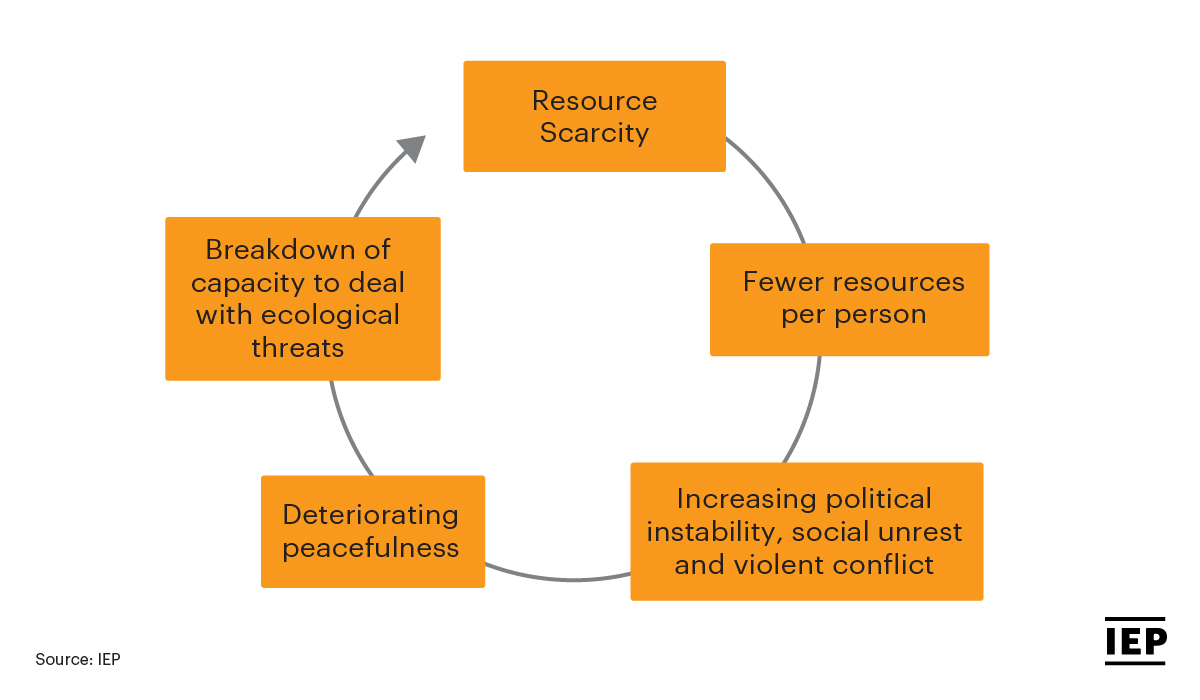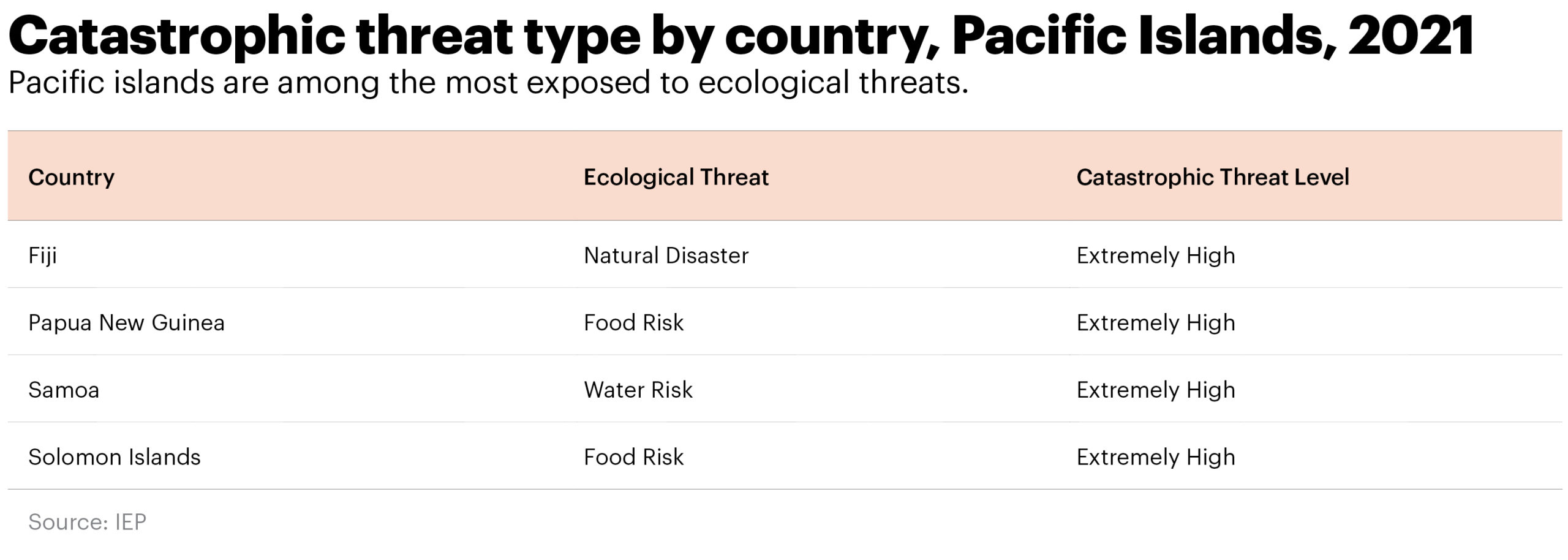Calls were made for drastic efforts to combat challenges facing the ocean as well as a collective push to reaffirm commitments to protect marine environments, as the UN Ocean Conference concluded in Lisbon last week. Over the 5 days participants including heads of state, politicians and scientists from over 120 countries met to discuss the critical issues facing the world’s oceans.
The ocean is responsible for generating about half of the world’s oxygen and is home to anywhere between 50-80% of all life on earth. Environmental issues such as over-fishing, water pollution and climate change are severely impacting the world’s marine environments.
Ecological and environmental threats pose a serious risk to global development, and there is significant intersectionality between environmental insecurity and low levels of peace. The Ecological Threat Report, produced by the Institute for Economics and Peace (IEP), highlights the cyclical relationship between ecological degradation and conflict.
The ETR shows how the degradation of resources leads to conflict, and the ensuing conflict leads to further resource degradation. An example of this was the dumping of toxic waste and illegal fishing by European companies off the coast of Somalia; which proved a key driver of Somali piracy and triggered a major security threat in the Gulf of Aden.

These issues disproportionately impact the world’s most vulnerable populations; with Asia-Pacific suffering more natural disasters than any other region over the last 30 years. This region is also the world’s largest producer of fish, which has led to drastic overfishing that has decimated their fish populations. The Asia-Pacific region also produces over 50% of the world’s plastic, much of which invariably makes its way into the ocean further exacerbating the issue.
Within the Asia-Pacific, the Pacific region is home to around 2.3 million people spread across hundreds of islands. This region suffers from king tides, frequent cyclones, sustained droughts, and the increasing salinity in water tables preventing crop growth. This region has already been dealing with increased extreme weather events, rising sea levels and increased resource scarcity as a result of climate change.
Small Pacific Island states have been particularly vulnerable to climate shocks in recent years, and for many of these nations the ocean is the primary source of both food and jobs. As such, there is a critical need to safeguard ocean health in order to protect these communities.

The previous UN Ocean Conference, held in 2017, saw the approval of an intergovernmental Call for Action, as well as a number of voluntary commitments and an increased acceptance of the importance of the ocean in realising the UN’s SDGs. Furthermore, there were significant commitments from private companies and policy makers to carry out sustainable business practices and protect the environment.
This year’s conference built on many of these commitments. It recognised the past “collective failure” of the international community, leading to over 150 of the UN’s member states voluntarily committing to conserve or protect at least 30% of the global ocean by 2030.
Some of the other key commitments that have arisen as a result of the conference include:
The Lisbon-based conference represented the last set of major multilateral talks before a summit in August, where 49 governments will meet in New York to finalise a Global Ocean Treaty. While there were a number of commitments made last week, they were all voluntary with significant inconsistencies in uptake by nations across the world. None of these are currently enforceable, and the implementation of many of these pledges remains unfeasible.
There have been a number of calls for a global agreement to carry out and enforce these objectives, similar to the Paris Climate Accords, to aid development of a framework to protect ocean environments from over-fishing and pollution. The challenges facing the world’s marine environments are complex and multifaceted, and we will likely need to see more universal, robust and legally binding commitments if the critical threats to the world’s marine environments are to be addressed appropriately.